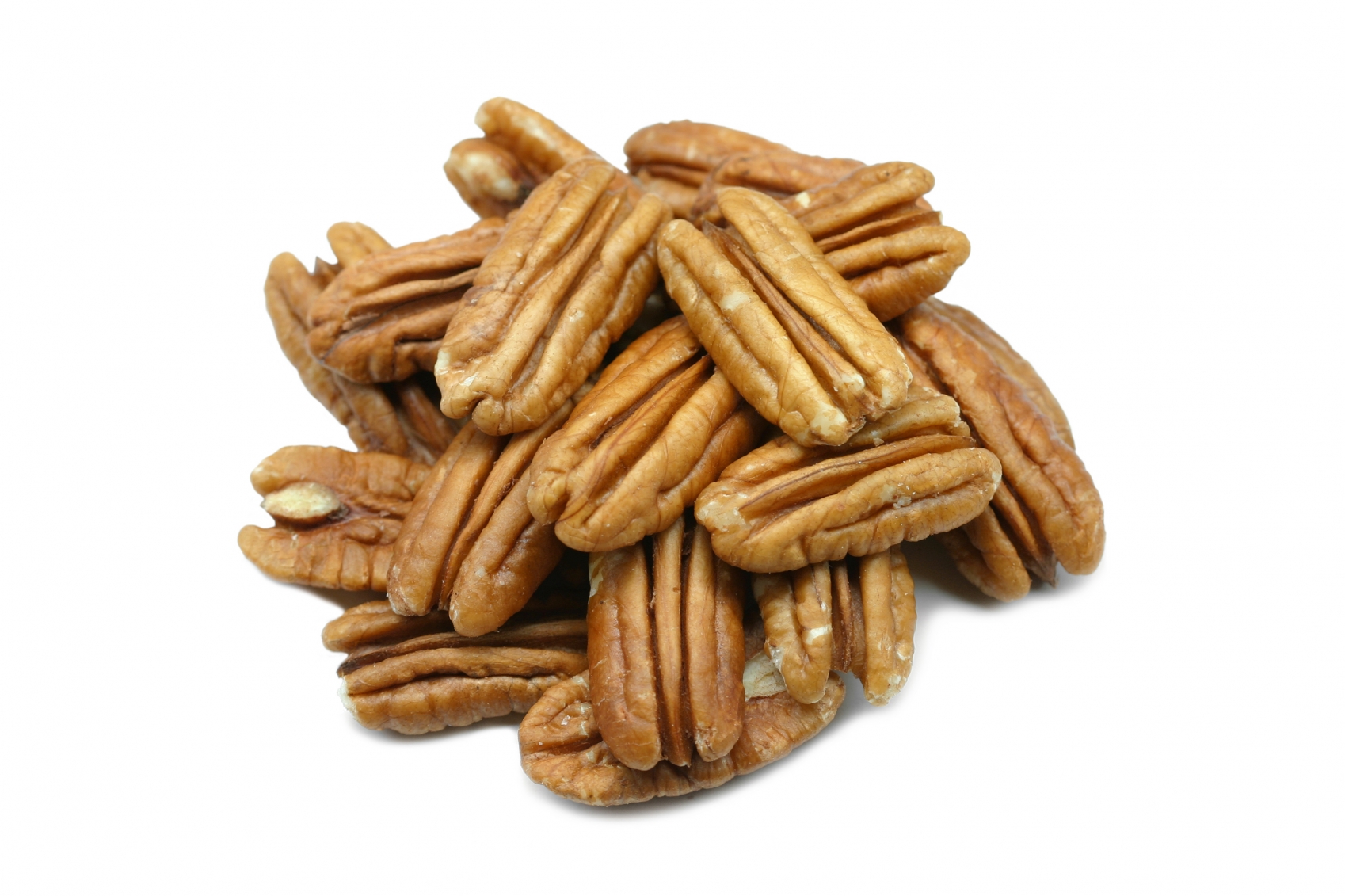Health Benefits of Nuts
Pecans, walnuts, and almonds possess much the same attributes giving these nuts a blanket title of “Superfoods”. Where they differentiate is in the levels of nutrients they contain.
ALMONDS
Almonds are a complete source of energy as well as nutrition; high in dietary fiber, vitamins, minerals and other health promoting phyto-chemicals. A handful of nuts a day provides much of the recommended amounts of proteins, vitamins and minerals.
Almonds are rich in oleic and palmitoleic acids that lower LDL and increase HDL cholesterol and help prevent coronary artery disease and strokes.
Almonds are an excellent source of vitamin E (170% RDA, 25g per 100 g). Vitamin E is a powerful antioxidant required for maintaining cell membrane integrity by providing protection from free radicals.
Almonds are gluten free and are used in preparation of food alternatives for people with celiac disease and wheat allergies.
The nuts are packed with many important B-complex groups of vitamins such as riboflavin, niacin, thiamin, pantothenic acid, vitamin B-6, and folates. Altogether, these vitamins work as co-factors for enzymes during cellular substrate metabolism.
Almonds are also an incredible source of minerals such as manganese, potassium, calcium, iron, magnesium, zinc, and selenium.
Almond oil is used in cooking, aromatherapy, and as a carrier oil in pharmaceuticals and cosmetics.
PECANS & WALNUTS
Walnuts contain the highest level of polyphenolic compounds among all the common edible nuts. Studies indicate that as few as 6 to 7 walnuts a day would help scavenge nearly all the free radicals from the human body.
Pecans and walnuts are high in omega-3 fatty acids. Eating as little a 25 grams of these nuts provide 90% of the RDA. The powerful anti-inflammatory action of omega-3 fatty acids help lower blood pressure, control coronary artery disease, stroke, and protect against cancers of breast, colon, and prostrate.
Tom Fetch 9-26-16
The information I am sharing is from a multitude of sources, and cultures over a wide time span. Neither L. E. Cooke Co. nor I as a representative assume any liability concerning the efficacy of the information shared. We do not suggest that any dietary protocols discussed are to replace conventional medical treatment or guarantee any results by their practice. We are nurserymen, not MDs, and proud of the trees we grow and the enhancements to life they provide.


